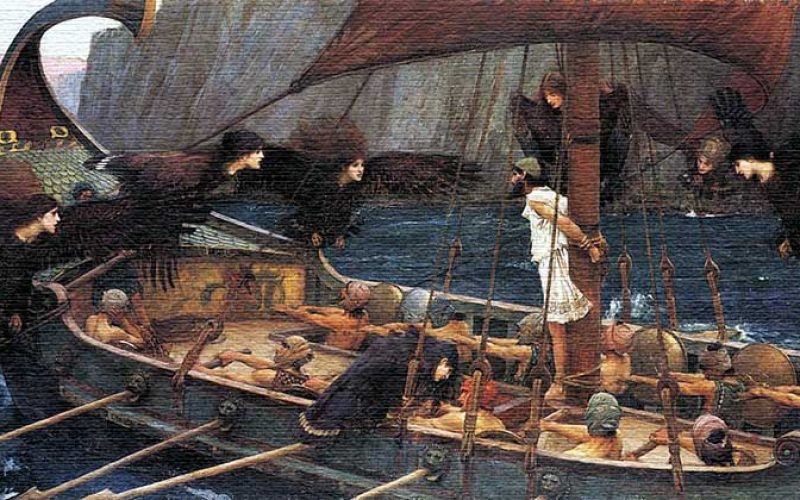I find it astonishing the greatest adventure ever told—The Odyssey by Homer—has seen only two semi-faithful film adaptations.
(Quick recap: The Odyssey recounts Odysseus’s ten-year return to Ithaca after the Trojan War. Gods and goddesses, sirens and monsters, attack, seduce, and delay him. When he finally reaches his palace and faithful wife Penelope, he must battle a bunch of free-loading usurpers to regain his kingship.)
In 1955, Kirk Douglas starred in an adaptation with that era’s cheesy sets but surprisingly good storytelling.
In 1997, a made-for-TV version starred Armand Assante as Odysseus, Isabella Rosselini as the goddess Athena, and Vanessa Williams as the siren Calypso. The excellent cast and impressive special effects barely followed the original work.
But then, for me, The Odyssey has always been a metaphor for the late-blooming journey. This beautiful poem by C.P. Cavafy, read by Sean Connery, captures it perfectly.
Ithaca
by Constantine P. Cavafy (1911)
As you set out for Ithaca
hope that your journey is a long one,
full of adventure, full of discovery.
Laestrygonians and Cyclops,
angry Poseidon—don’t be afraid of them:
you’ll never find things like that on your way
as long as you keep your thoughts raised high,
as long as a rare sensation
touches your spirit and your body.
Laestrygonians and Cyclops,
wild Poseidon—you won’t encounter them
unless you bring them along inside your soul,
unless your soul sets them up in front of you.
Hope that your journey is a long one.
May there be many summer mornings when,
with what pleasure, what joy,
you come into harbors you’re seeing for the first time;
may you stop at Phoenician trading stations
to buy fine things,
mother of pearl and coral, amber and ebony,
sensual perfume of every kind—
as many sensual perfumes as you can;
and may you visit many Egyptian cities
to learn and learn again from those who know.
Keep Ithaca always in your mind.
Arriving there is what you’re destined for.
But don’t hurry the journey at all.
Better if it lasts for years,
so that you’re old by the time you reach the island,
wealthy with all you’ve gained on the way,
not expecting Ithaca to make you rich.
Ithaca gave you the marvelous journey.
Without her you would have not set out.
She has nothing left to give you now.
And if you find her poor, Ithaca won’t have fooled you.
Wise as you will have become, so full of experience,
you’ll have understood by then what these Ithacas mean.
Do you relate to The Odyssey?
Opening Image: Ulysses and the Sirens by John William Waterhouse (1891) via WikiPaintings.org.
